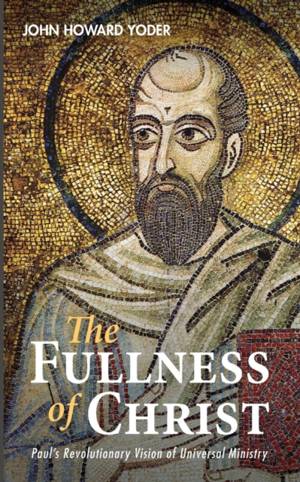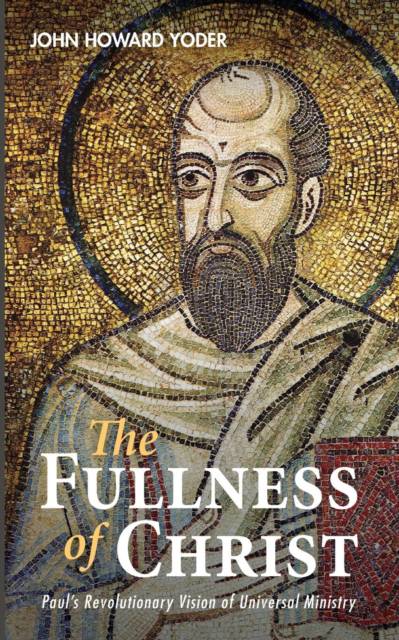
Bedankt voor het vertrouwen het afgelopen jaar! Om jou te bedanken bieden we GRATIS verzending (in België) aan op alles gedurende de hele maand januari.
- Afhalen na 1 uur in een winkel met voorraad
- In januari gratis thuislevering in België
- Ruim aanbod met 7 miljoen producten
Bedankt voor het vertrouwen het afgelopen jaar! Om jou te bedanken bieden we GRATIS verzending (in België) aan op alles gedurende de hele maand januari.
- Afhalen na 1 uur in een winkel met voorraad
- In januari gratis thuislevering in België
- Ruim aanbod met 7 miljoen producten
Zoeken
Omschrijving
In this groundbreaking study, John Howard Yoder searches for the New Testament vision of ministry. The author examines the vocabulary used by Paul and other New Testament writers in relation to the universal ministry of the church. The theological and sociological distinctions that have since developed between clergy and laity are also examined. Yoder concludes that the biblical texts point to the existence of a spirit-filled ministry given to all believers. While various offices of ministry are mentioned in the New Testament, the author argues that there was no laity as such in the early church. No distinctions were made between those who possessed spiritual gifts and those who did not. All members of the church were considered to have a valid ministry. Even though this radical concept of ""universal ministry"" was soon lost from the early church, it may serve as a catalyst for discussion today as the church faces increasing challenges in leadership.
Specificaties
Betrokkenen
- Auteur(s):
- Uitgeverij:
Inhoud
- Aantal bladzijden:
- 116
- Taal:
- Engels
Eigenschappen
- Productcode (EAN):
- 9781532679100
- Verschijningsdatum:
- 15/04/2019
- Uitvoering:
- Paperback
- Formaat:
- Trade paperback (VS)
- Afmetingen:
- 127 mm x 203 mm
- Gewicht:
- 122 g

Alleen bij Standaard Boekhandel
+ 33 punten op je klantenkaart van Standaard Boekhandel
Beoordelingen
We publiceren alleen reviews die voldoen aan de voorwaarden voor reviews. Bekijk onze voorwaarden voor reviews.









